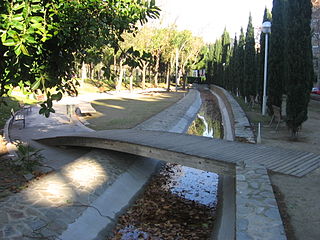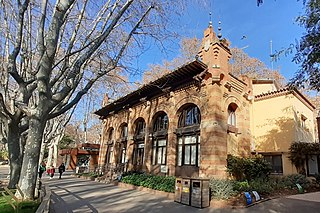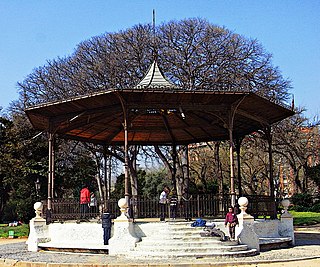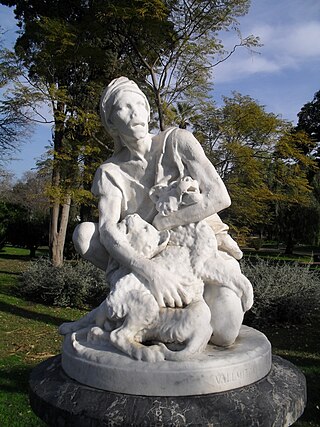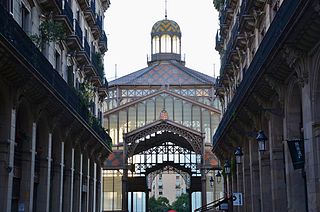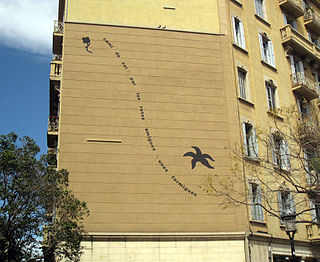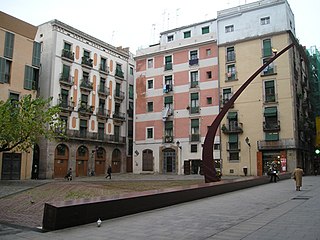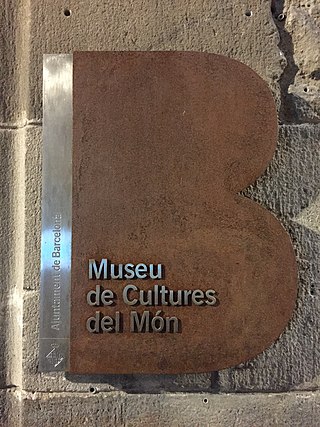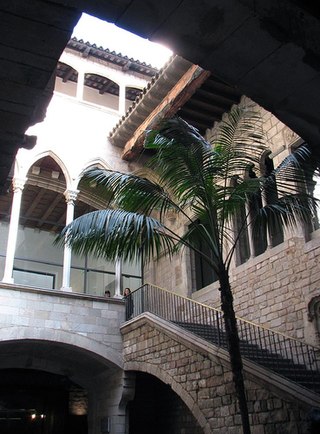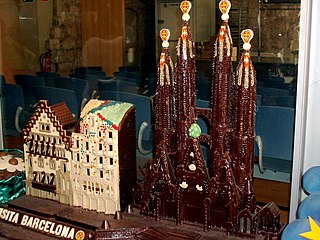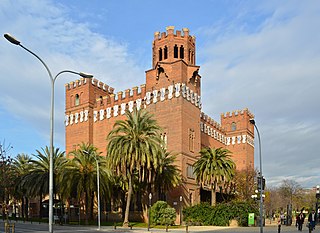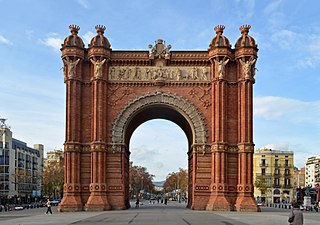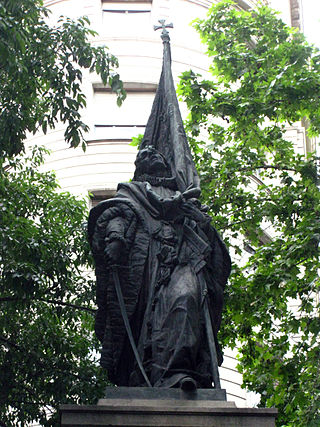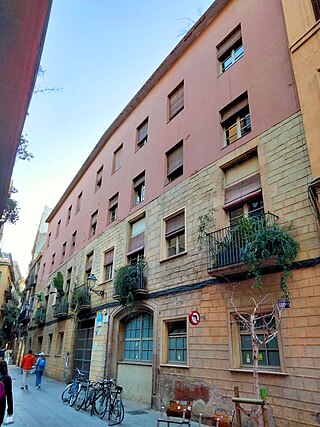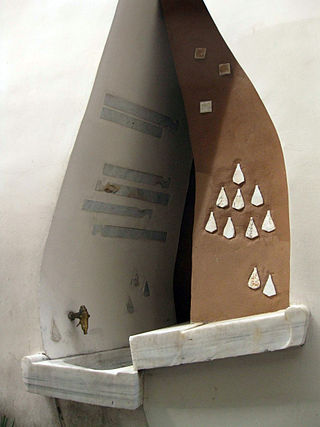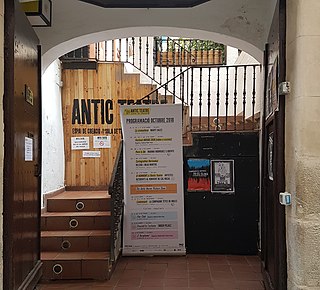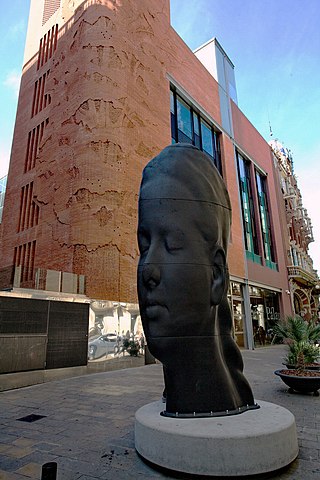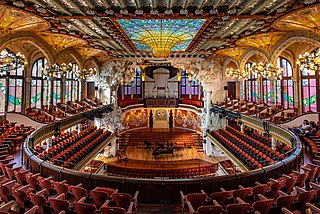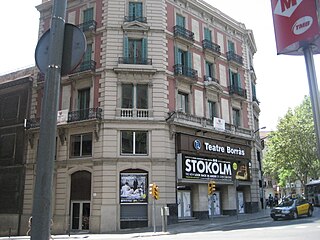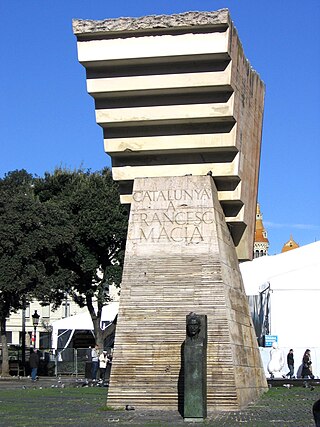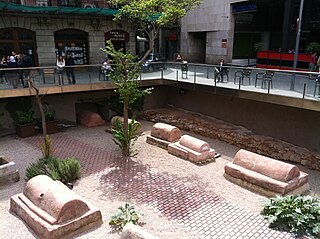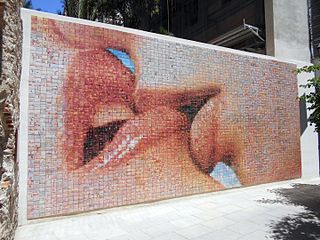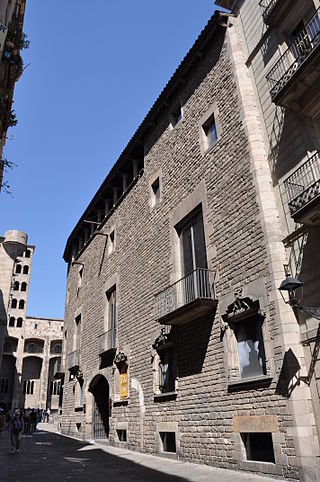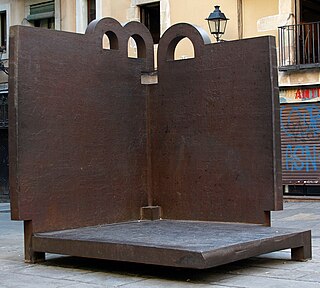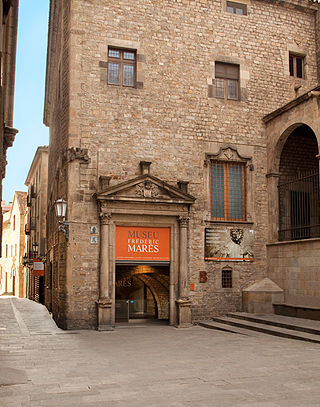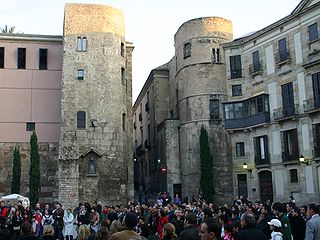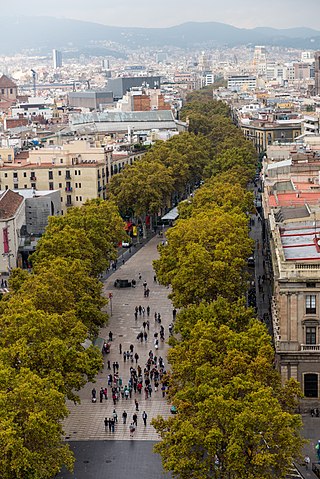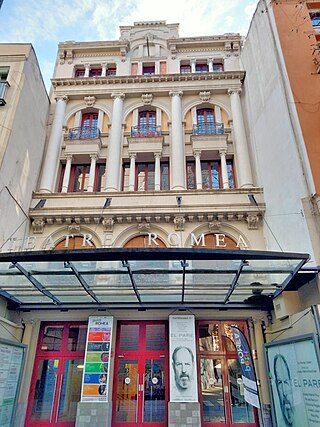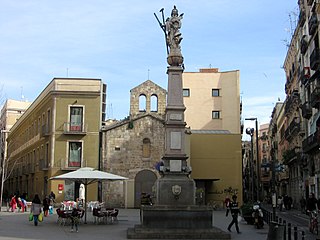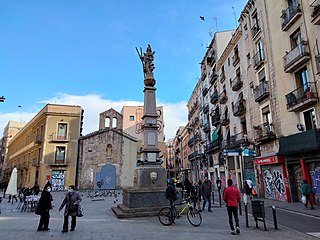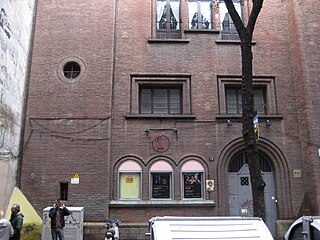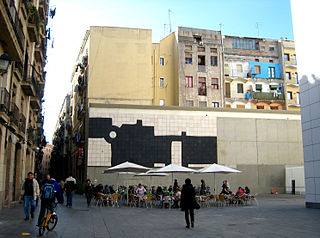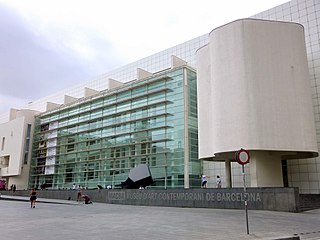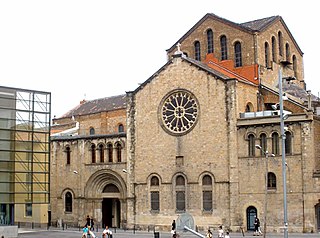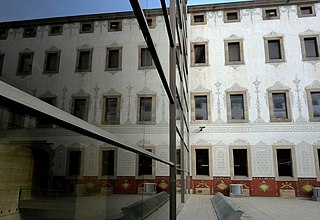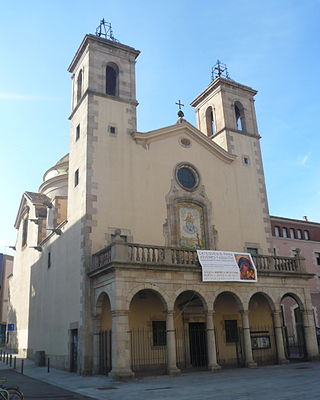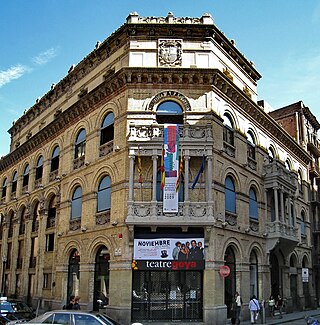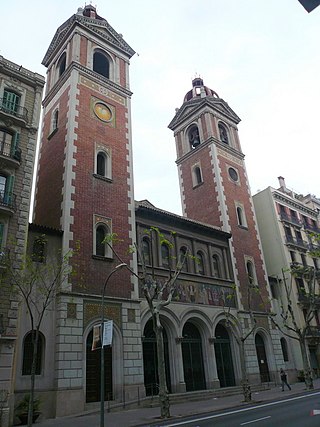Self-guided Sightseeing Tour #3 in Barcelona, Spain
Legend
Guided Free Walking Tours
Book free guided walking tours in Barcelona.
Guided Sightseeing Tours
Book guided sightseeing tours and activities in Barcelona.
Tour Facts
11.3 km
181 m
Experience Barcelona in Spain in a whole new way with our free self-guided sightseeing tour. This site not only offers you practical information and insider tips, but also a rich variety of activities and sights you shouldn't miss. Whether you love art and culture, want to explore historical sites or simply want to experience the vibrant atmosphere of a lively city - you'll find everything you need for your personal adventure here.
Activities in BarcelonaIndividual Sights in BarcelonaSight 1: Parc de Carles I
Parque de Carlos I is located in the Sant Martí district of Barcelona. It was created in 1992 with a project by Pep Zazurca and Juli Laviña. It is dedicated to Emperor Charles I of Spain and V of Germany, of whom good memories are kept in Barcelona since on a visit in 1519 he commented that he preferred "to be Count of Barcelona rather than Emperor of the Germanys."
Sight 2: Casa dels Lleons
The House of the Lions is a neo-Mudejar style building located in the Parc de la Ciutadella in Barcelona, protected as an asset with elements of interest.
Sight 3: Glorieta de la Transsexual Sonia
The Glorieta de la Transsexual Sònia is a public space located in the Parc de la Ciutadella in Barcelona. Called Glorieta dels Músics, it was renamed in 2013 in memory of Sònia Rescalvo Zafra, a transsexual murdered by a fascist group of six neo-Nazi skinheads in 1991. In the first five years after the premiere, the plaque was stolen or damaged three times.
Sight 4: Caçador de Lleons
The Lion Hunter is one of the sculptures that are part of the Parc de la Ciutadella in Barcelona, where it was placed on September 21, 1883. This piece, the work of the sculptor Agapit Vallmitjana i Abarca, was commissioned directly by the Barcelona City Council, in a contract signed on April 30 of that same year, within the context of the upcoming Universal Exhibition that would be held in the city in 1888.
Sight 5: El Born Centre de Cultura i Memòria
Get Ticket*Mercat del Born is a former public market and one of the most important buildings in Barcelona, Catalonia, Spain constructed with iron. Located in the lower and eastern side of the la Ribera neighborhood, it is the largest covered square in all of Europe and marked the start of Modernisme in Catalan architecture.
Sight 6: les formigues
The ants are a mural based on the eponymous calligram of Joan Salvat-Papasseit, located in the dividing wall of the Paseo del Born, 25, on the corner of the Rec Comtal street, in the district of La Ribera de Barcelona.
Sight 7: Fossar de les Moreres
The Fossar de les Moreres is a memorial square in Barcelona, adjacent to the basilica of Santa Maria del Mar. The plaza was built over a cemetery where defenders of the city were buried following the Siege of Barcelona at the end of the War of the Spanish Succession in 1714. The plaza features a memorial to the fallen Catalans of the war, with a torch of eternal flame and a heroic poem by Frederic Soler, "El Fossar de les Moreres".
Sight 8: Museu de Cultures del Món
The Museum of World Cultures was a museum specialising in the history of various cultures from around the world that occupies the Palau Nadal, former headquarters of the Barbier-Mueller Museum of Pre-Columbian Art in Barcelona, as well as the Palau del Marquès de Llo, former headquarters of the Design Museum, at Carrer de Montcada, 12 and 14 in Barcelona. The cost of the adaptation works was 4,195,000 euros. and the project was commissioned to the architects Tomàs Morató and Jaume Arderiu.
Sight 9: Picasso Museum
The Museu Picasso is an art museum in Barcelona, in Catalonia, Spain. It houses an extensive collection of artworks by the twentieth-century Spanish artist Pablo Picasso, with a total of 4251 of his works. It is housed in five adjoining medieval palaces on Montcada Street in the La Ribera neighborhood in the Old City of Barcelona. It opened to the public on 9 March 1963, becoming the first museum dedicated to Picasso's work and the only one created during his lifetime. It has since been declared a museum of national interest by the Government of Catalonia.
Sight 10: Museu Europeu d'Art Modern
The European Museum of Modern Art (MEAM) opened its doors in the Ribera district of Barcelona, very close to the Picasso Museum, becoming the first museum of contemporary figurative art in Spain. Its director is the Barcelona architect, writer and publisher José Manuel Infiesta, a historical militant of the former neo-Nazi group Spanish Circle of Friends of Europe (CEDADE). It is a private initiative, initiated by the Arts and Artists Foundation.
Sight 11: La Puntual
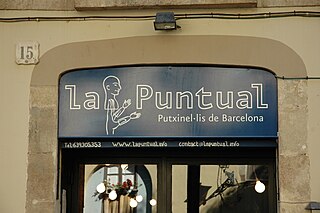
La Puntual is a theatre, located at Carrer d'Allada-Vermell, 15 in Barcelona, specialising in puppet, puppet and shadow puppet theatre.
Sight 12: Museu de la Xocolata
Museu de la Xocolata or Museo del Chocolate in Spanish, is a private museum in Barcelona, Catalonia, Spain, owned by the Gremio de Pastelería de Barcelona.
Sight 13: Castle of the Three Dragons
The Castle of the Three Dragons, is the popular name given to the modernisme building built between 1887 and 1888 as a Café-Restaurant for the 1888 Universal Exposition of Barcelona by Lluís Domènech i Montaner. This name was probably adopted from the 1865 play by Serafí Pitarra.
Sight 14: Monument a Rius i Taulet
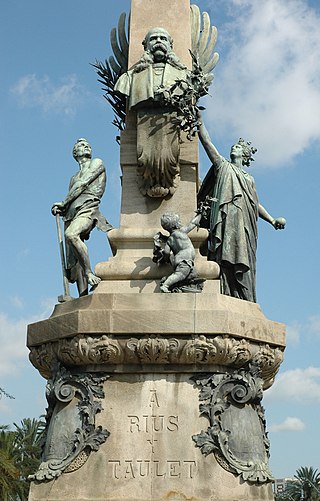
The monument to Rius i Taulet is located on Passeig de Lluís Companys in Barcelona and is listed as a cultural asset of local interest. It is dedicated to Francesc de Paula Rius i Taulet, mayor of Barcelona during the 1888 Exposition.
Sight 15: Triumphal Arch
The Arc de Triomf is a memorial arch in Barcelona, Catalonia, Spain. It was built by architect Josep Vilaseca i Casanovas as the main access gate for the 1888 Barcelona World Fair. The arch crosses over the wide central promenade of the Passeig de Lluís Companys, leading to the Ciutadella Park that now occupies the site of the world fair. It is located at the northern end of the promenade, facing the Passeig de Sant Joan.
Sight 16: Monument to Rafael Casanova
The Monument to Rafael Casanova is a sculpture located at the intersection of Ronda de Sant Pere and Carrer d'Alí Bei in Barcelona, listed as a cultural asset of local interest. A work by the sculptor Rossend Nobas (1888), it is a tribute to Rafael Casanova i Comes, the last chief councillor of Barcelona.
Sight 17: Escola Cervantes
The Palau Dou is a building located between the streets of Sant Pere Més Baix and Mitjà in Barcelona, listed as an asset with elements of interest. It currently houses the Cervantes School.
Sight 18: Font del Bacallà
The Font del Bacallà, also known as the Font de Santa Caterina, is a public fountain located on Carrer de Colomines, in the city of Barcelona, on the wall that had served as the rear fence of the Santa Caterina market.
Sight 19: L'Antic Teatre
The Antic Teatre is a theatre and resource centre for the multidisciplinary arts created in 2003 at Carrer de Verdaguer i Callís, 12 in Barcelona, which years ago had been the headquarters of the Cercle Barcelonès de Sant Josep. Since then, he has developed an intense artistic activity that has made him a benchmark for experimental and independent theatre.
Sight 20: Carmela
Carmela is a sculpture by Jaume Plensa, located in front of the Palau de la Música Catalana, on Carrer de Sant Pere Més Alt in Barcelona.
Sight 21: Palau de la Música Catalana
Palau de la Música Catalana is a concert hall in Barcelona, Catalonia, Spain. Designed in the Catalan modernista style by the architect Lluís Domènech i Montaner, it was built between 1905 and 1908 for Orfeó Català, a choral society founded in 1891 that was a leading force in the Catalan cultural movement that came to be known as the Renaixença. It was inaugurated on 9 February 1908.
Sight 22: Teatre Borràs
The Borràs Theater is an old cinema, transformed into a theater in Barcelona. It belongs to the Balañà Group.
Sight 23: Monument to Francesc Macià
The Monument to Francesc Macià is a sculpture located at the southern end of Plaça de Catalunya in Barcelona, in front of La Rambla, the work of Josep Maria Subirachs and inaugurated on 25 December 1991.
Sight 24: Poliorama
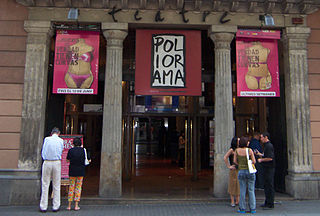
The Poliorama Theater is a theater, former cinema, located on the ground floor of the building of the Royal Academy of Sciences and Arts of Barcelona, at Rambla, 115. Opened in 1899 as a cinema, it later alternated its use with theatrical performances. It has been operating since 1976 as a theatre. Between 1937 and 1939 it was called the Teatre Català de la Comèdia.
Sight 25: Roman Sepulchral Via
The Sepulchral way of the Plaça de la Villa de Madrid is a Roman necropolis dating from the 1st to the 3rd century AD, located in the Plaça de la Villa de Madrid and its surroundings in Barcelona. The site lies below the current level of the square, but is visible from the street due to the urban design. It is one of the various heritage sites managed by the Museum of the History of Barcelona.
Sight 26: El món neix en cada besada
The world is born in every kiss is a photomosaic located in Plaça d'Isidre Nonell, in the Ciutat Vella district of Barcelona. It was taken by the photographer Joan Fontcuberta and the ceramist Toni Cumella in 2014.
Sight 27: Chapel of Santa Àgata
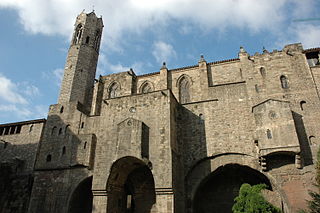
The Chapel of Santa Àgata is a chapel located in Barcelona, Catalonia, Spain. It is also as the Royal Chapel. It was declared Bien de Interés Cultural in 1866.
Sight 28: Museu d'Història de la Ciutat
The Museum of the History of Barcelona is a history museum that conserves, researches, communicates and exhibits the historical heritage of the city of Barcelona, from its origins in Roman times until the present day. The museum's headquarters are located on Plaça del Rei, in the Barcelona Gothic Quarter. It also manages several historic sites all around the city, most of them archaeological sites displaying remains of the ancient Roman city, called Barcino in Latin. Some others date to medieval times, including the Jewish quarter and the medieval royal palace called the Palau Reial Major. The rest are contemporary, among them old industrial buildings and sites related to Antoni Gaudí and the Spanish Civil War.
Sight 29: Topos V
Topos V, or simply Topos, is a sculpture by the Basque artist Eduardo Chillida, from 1986, standing at Plaça del Rei in the Gothic Quarter of Barcelona.
Sight 30: Museu Frederic Marès
The Museu Frederic Marès is an art and sculpture museum in the Palau Reial Major in Barcelona, Spain.
Sight 31: Portal del Bisbe
Plaça Nova is a space in the Gothic Quarter of Barcelona in front of the old Porta Praetoria of the Roman wall, which gave way to the decumanus, and where the streets of La Palla, dels Boters, dels Arcs and dels Capellans converge. It has borne this name from its creation in the mid-fourteenth century to the present day, except for a short period in which it was changed to Vázquez de Mella on the death of this politician in 1928. It was a closed square, typically medieval, until the 1940s, when, taking advantage of the damage caused by the bombings of the Civil War, the Avenue of the Cathedral was opened.
Sight 32: La Rambla
La Rambla is considered the most well known street in central Barcelona. A tree-lined pedestrian street, it stretches for 1.2 kilometres connecting the Plaça de Catalunya in its center with the Christopher Columbus Monument at Port Vell. La Rambla forms the boundary between the neighbourhoods of the Barri Gòtic to the east and the El Raval to the west.
Sight 33: Teatre Romea
The Teatre Romea is a performance hall dedicated mainly to theatrical performances, located at Carrer de l'Hospital, 51 in the Raval district of Barcelona and listed as a cultural asset of local interest. In 2015 he received the Creu de Sant Jordi "for the important role that this facility, created in 1863, has played in the culture and society of Barcelona and Catalonia".
Sight 34: Sant Llàtzer
The Hospital de Sant Llàtzer is an architectural complex in the Raval district of Barcelona, of which one of the wings has been preserved, listed as an asset with elements of interest, and the church, listed as a cultural asset of local interest.
Sight 35: Plaça del Pedró
The Plaça del Pedró is a square in the Raval district of Barcelona. It has a triangular shape with two sides delimited by Carrer del Carme and Carrer de l'Hospital, which join in Carrer de Sant Antoni Abat.
Sight 36: Teatre del Raval
The Teatre del Raval was a theatrical space located within the premises of the Església del Carme, at Carrer de Sant Antoni Abat, 12-16 in the Raval of Barcelona.
Sight 37: Barcelona, mural G-333
Mural G-333 is a mural made by Chillida and located in the Raval district of Barcelona, in front of the MACBA. In fact, it is part of his public art collection. It was carried out in 1998, three years after the inauguration of the building that houses MACBA and four years before his death.
Sight 38: Barcelona Museum of Contemporary Art
The Barcelona Museum of Contemporary Art is a contemporary art museum situated in the Plaça dels Àngels, in El Raval neighborhood, Ciutat Vella district, in Barcelona, Catalonia, Spain. The museum opened to the public on 28 November 1995.
Wikipedia: Barcelona Museum of Contemporary Art (EN), Website
Sight 39: Santa Maria de Montalegre
Santa Maria de Montalegre is a church located on Carrer de Valldonzella in the Raval district of Barcelona, which is part of the Casa de la Caritat complex, listed as a cultural asset of local interest.
Sight 40: Pati Manning
The Casa de la Caritat is a group of buildings in the Raval district of Barcelona, listed as a Cultural Asset of Local Interest. It currently houses a cultural complex made up of several institutions, such as the Centre for Contemporary Culture of Barcelona, in the Pati de les Dones, and the Centre for Cultural Studies and Resources (CERC) of the Barcelona Provincial Council, in the Pati Manning, and the Blanquerna Faculty of Communication and International Relations of the Ramon Llull University. The House itself has 2 Corpus Christi Giants exhibited for La Mercè in the Manning Courtyard and in the Casa dels Entremesos and those of the Carnival permanently exhibited in the Palau de la Virreina
Sight 41: Sant Pere Nolasc
The Church of Sant Pere Nolasc, formerly of Sant Sever and Sant Carles Borromeu, is a building located in Plaça de Castella in the Raval district of Barcelona, listed as a cultural asset of local interest. It is the only part that remains of the old convent of the Pauls, called Casa de Sant Sever.
Sight 42: Teatre Goya
The Goya Theatre is a performance hall in Barcelona, located in the Centre Aragonès building.
Sight 43: Sant Josep Oriol
The Basilica of Saint Joseph Oriol is a basilica in Barcelona, Catalonia.
Share
Disclaimer Please be aware of your surroundings and do not enter private property. We are not liable for any damages that occur during the tours.
GPX-Download For navigation apps and GPS devices you can download the tour as a GPX file.
